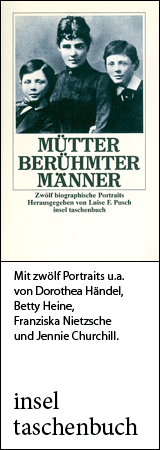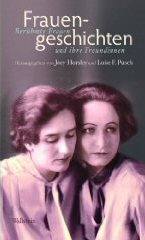
(Clémence Louise Michel)
born on May 29, 1830 at Vroncourt Castle (Haute-Marne), France
died on January 9, 1905 in Marseille, France
French revolutionary and anarchist, teacher and writer
120th anniversary of her death on January 9, 2025
195th birthday on May 29, 2025
Biography
Louise Michel, a revolutionary and anarchist who was called the “red virgin” or “modern Joan of Arc,” was the key activist of the Paris Commune, the popular uprising that resisted the new bourgeois government and the Prussian victors for ten weeks in the spring of 1871. For the first time in history, workers had seized power. Louise Michel organized supplies for the starving, tended to the wounded, and even donned the uniform of the National Guard to take active part in the armed struggle. After the bloody suppression of the uprising, Louise Michel and the other revolutionaries were put on trial and then sent to the infamous prison camp in Satory where many of them died. In 1873, Louise Michel and the others who had survived in Satory were deported to the penal colony of New Caledonia in the northeast of Australia.
In 1880, amnesty was granted to the Communards and Louise Michel returned to France. After a triumphant welcome in Paris, she immediately resumed the fight for revolution. The last third of her life was dedicated to the cause and the charismatic speaker traveled across France and throughout Europe to promote socialism.
Louise Michel was the illegitimate daughter of Marianne Michel, who had grown up in the castle of the Demahis family on the outskirts of Vroncourt, a village in eastern France. Louise's father, the Demahis son, deserted Marianne, but the enlightened grandparents treated her as their legitimate grandchild and supported her. Mother and daughter remained very close throughout their lives.
After the death of her grandparents, Louise and her mother were forced to leave the castle. Michel trained as a teacher, but as a republican she refused to take an oath to the empire of Napoleon III and she thus founded her own small school. By 1856 she felt stifled in the province and moved to Paris. She continued to earn her living as a teacher and to maintain close contact with socialists and anarchists.
Louise Michel was able to endure her life of privation and struggle thanks to the support of the women at her side. The first of these women was the mother she adored. While she was a teacher, it was her colleague Julie Longchamps with whom she also shared lodgings. The hardships of exile in New Caledonia were endured with Natalie Lemel, while another close friend, Marie Ferré – the sister of the executed revolutionary Théophile Ferré – tended to her mother in France. Finally, it was the woman who never left her side during her last fifteen years: Charlotte Vauvelle.
Louise Michel’s poetic sensitivity and creativity (she wrote poems for every occasion; poets such as Hugo and Verlaine praised the captivating revolutionary in their poems) and the rare ability to make the best out of every hopeless situation also served her well. The crossing to New Caledonia lasted four endless months; many of her fellow deportees became depressed. But for her the voyage was a source of joy as she was able to experience the sea for the first time. She neither sunk into self-pity nor became homesick after arriving in New Caledonia: she immersed herself in her new surroundings with lively interest and immediately devoted herself to a range of projects. To the benefit of all she tended to sick papaya trees, nursed wounded animals, and befriended the Kanak people. She learned their language and became the first to record Kanuk songs and legends. After her return to Paris, she was wounded in an assassination attempt – yet she lobbied for the shooter’s acquittal! And visitors calling on Louise Michel in her modest rooms during her exile in London were greeted by her parrot squawking out: “Long live anarchy!”
What an incredible woman!
(Text from 2004; translated with DeepL.com; edited by Ramona Fararo, 2024.
Please consult the German version for additional information, pictures, sources, videos, and bibliography.)
Author: Luise F. Pusch
Quotes
But the strongest impression was made by another individual with whom I later developed a quiet friendship. A sixty-year-old, skinny old maid with a pointed nose, loose hair and kind, fiery eyes: Louise Michel. She misunderstood me and my foolish occupation as a traveler to various congresses, and in one of our conversations she challenged me: “Eh bien, jeune homme - get up on the platform, speak!” That I didn’t do. But I listened to her speak that evening when she got up on the platform of the anarchists. She spoke simply and sincerely, full of the deep kindness that was her nature; she spoke for the wretched, the suffering, the misérables foules, she simply spoke of that which unites all of us, the souffrance humaine, and she concluded her speech with an almost resigned appeal: vive la liberté. I cannot forget the old woman. Whoever hears her voice once, hears it for years to come.
(Alfred Kerr on August 9, 1896, quoted in: Alfred Kerr. 1999 (1997). Wo liegt Berlin? Briefe aus der Reichshauptstadt 1895-1900. Ed. Günther Rühle. Berlin. Siedler TB. P. 190).
If you hold the rights to one or more of the images on this page and object to its/their appearance here, please contact Fembio.



